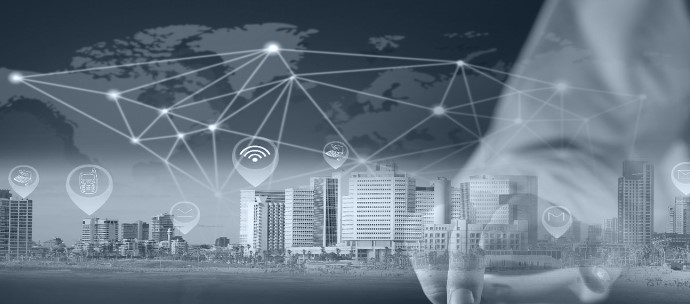Introduction:
In the fast-paced world of business, staying ahead of the competition requires continuous innovation and adaptability. One of the key drivers of this transformation is the integration of Enterprise Resource Planning (ERP) systems into the digital landscape. As organizations embark on the journey of ERP digital transformation, they are not only modernizing their technology but also reshaping the way they operate, collaborate, and make strategic decisions.
Understanding ERP Digital Transformation:
ERP systems have long been the backbone of organizational processes, streamlining functions such as finance, human resources, supply chain, and customer relationship management. However, the digital era demands more than just efficient management; it requires agility, real-time insights, and seamless connectivity across the entire business ecosystem.
- Cloud-Based ERP:
- Embracing the cloud is a fundamental aspect of ERP digital transformation. Cloud-based ERP solutions offer scalability, flexibility, and accessibility, enabling organizations to adapt quickly to changing market conditions.
- The cloud facilitates real-time data sharing, reducing delays in decision-making and promoting collaboration among teams, regardless of geographical locations.
- Data Analytics and Business Intelligence:
- Modern ERP systems are equipped with advanced analytics and business intelligence tools. By leveraging data, organizations gain valuable insights into customer behavior, market trends, and operational efficiency.
- Predictive analytics empowers businesses to make informed decisions, anticipate market shifts, and optimize resource allocation.
- Mobile ERP:
- Mobile accessibility is no longer a luxury but a necessity. Mobile ERP solutions empower employees to access critical business information on the go, fostering productivity and responsiveness.
- Mobile integration also facilitates real-time updates, ensuring that decision-makers have access to the latest data when and where they need it.
- Integration of Emerging Technologies:
- ERP systems are incorporating emerging technologies such as Artificial Intelligence (AI) and the Internet of Things (IoT). AI enhances automation, reducing manual tasks and improving overall efficiency.
- IoT integration allows for the collection of real-time data from various sources, enabling organizations to optimize processes, track assets, and enhance overall operational visibility.
Challenges and Considerations:
- Change Management:
- ERP digital transformation requires a cultural shift within the organization. Successful implementation depends on effective change management strategies, including employee training, communication, and leadership support.
- Data Security and Privacy:
- As digital transformation increases connectivity, organizations must prioritize data security and privacy. Implementing robust cybersecurity measures and compliance with data protection regulations are critical components of ERP digitalization.
- Customization vs. Standardization:
- Striking the right balance between customization and standardization is essential. While customization meets specific business needs, excessive customization can lead to complexity and hinder system upgrades.
Conclusion:
The digital transformation of ERP systems is not merely a technological upgrade; it is a strategic imperative for organizations seeking to thrive in the digital age. By embracing cloud technologies, data analytics, mobile solutions, and emerging technologies, businesses can unlock new levels of agility, efficiency, and innovation. However, success depends on addressing challenges such as change management, data security, and finding the optimal balance between customization and standardization.ERP systems for Business As organizations navigate the evolving landscape, ERP digital transformation remains a powerful tool for shaping the future of business.





Comments